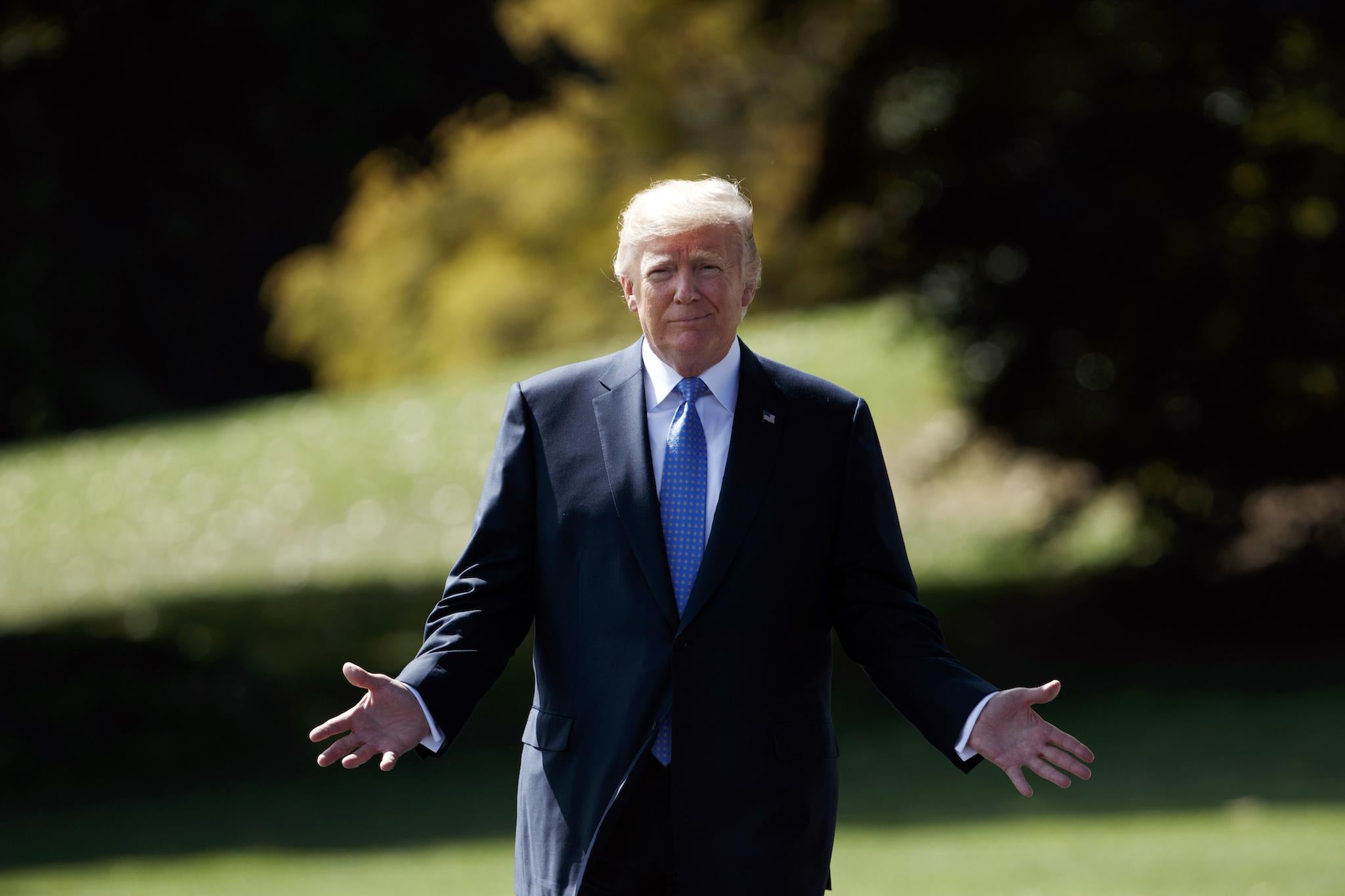Trump says he'll work with Democrats on healthcare after latest embarrassing defeat
The President also says he'll sign an executive order allowing purchase of health insurance across state lines

Your support helps us to tell the story
From reproductive rights to climate change to Big Tech, The Independent is on the ground when the story is developing. Whether it's investigating the financials of Elon Musk's pro-Trump PAC or producing our latest documentary, 'The A Word', which shines a light on the American women fighting for reproductive rights, we know how important it is to parse out the facts from the messaging.
At such a critical moment in US history, we need reporters on the ground. Your donation allows us to keep sending journalists to speak to both sides of the story.
The Independent is trusted by Americans across the entire political spectrum. And unlike many other quality news outlets, we choose not to lock Americans out of our reporting and analysis with paywalls. We believe quality journalism should be available to everyone, paid for by those who can afford it.
Your support makes all the difference.Donald Trump has said he intends to work with Democrats on healthcare, hours after he called for the Senate’s Republican leadership to get rid of the filibuster rule that encourages bipartisanship.
Republicans this week were forced to declare the death of their latest drive to overhaul Obamacare, when it became apparent they didn’t have enough support from their own party to pass a repeal bill, known as Graham-Cassidy.
On Wednesday, Mr Trump told reporters that Republicans “have the votes” in support of the measure, but could not move ahead with a vote this week because a senator is in the hospital.
It was later revealed that Mr Trump was referring to Republican Senator Thad Cochran of Mississippi, who is in his home state recovering from a “urological issue”. Mr Cochran will be away from Washington all week, Fox News reported.
Mr Trump also predicted a vote on healthcare reform will happen during the first three months of next year. In the meantime, he said he plans to negotiate with Democrats on a bipartisan bill and issue a “very major” executive order, probably next week, “where people can go out across state lines, do lots of things, and buy their own healthcare”.
His comments came after he had tweeted on Wednesday: “We will have the votes for Healthcare but not for the reconciliation deadline of Friday, after which we need 60. Get rid of Filibuster Rule!” – which seemed to indicate that he would not be negotiating with Democrats on healthcare.
Despite the President’s insistence that Republicans have enough support to pass a healthcare bill, all evidence points to the contrary.
Multiple senators had expressed concerns about the process being used to rush Graham-Cassidy through Congress by September 30. After that date, procedural rules in the Senate will make it much more difficult for Republicans to pass any type of healthcare reform this year without at least some Democratic support.
Senate Majority Leader Mitch McConnell had attempted to pass the healthcare bill under the budget reconciliation process. To conform to the rules of reconciliation legislation – meaning that the Senate only needs 51 votes to push forward a measure – the bill must meet certain requirements, including reducing the budget deficit.
Most other bills can be filibustered – when debate over a proposed piece of legislation is extended – and would need 60 votes to end the filibuster, or invoke cloture. Requiring 60 votes to end debate is a unique characteristic of the Senate and has the effect of requiring some Republicans to work with Democrats to push forward legislation.
Mr Trump’s repeated calls to change Senate rules are said to have frustrated Republicans, but the President appears to believe that throwing out the filibuster procedure is the key to passing important legislation, especially a bill aimed at overhauling Obamacare.
On Monday, Senator Susan Collins joined her Republican colleagues Rand Paul and John McCain in their opposition to the bill, all but ensuring the measure would not pass. Mr McConnell could only afford to lose two votes from his party, which holds a 52-seat majority in the 100-member Senate. No Democrats were expected to vote for the legislation.
Following the announcement there would be no healthcare vote this week, Mr McConnell said Republicans have not given up trying to change America's healthcare system.
Republicans assert that the law, also known as the Affordable Care Act, has destabilised individual markets for health insurance and has forced consumers to buy insurance they do not want or cannot afford.
Democrats responded to the defeat of Graham-Cassidy on Wednesday by calling for Republicans to resume bipartisan negotiations to stabilise the health insurance markets. Those bipartisan talks came to a standstill earlier this month after the latest Obamacare repeal plain gained momentum.
“We hope we can move forward and improve health care, not engage in another battle to take it away from people, because they will fail once again if they try,” said Senator Chuck Schumer, the Democratic leader of the Senate.
Join our commenting forum
Join thought-provoking conversations, follow other Independent readers and see their replies
Comments